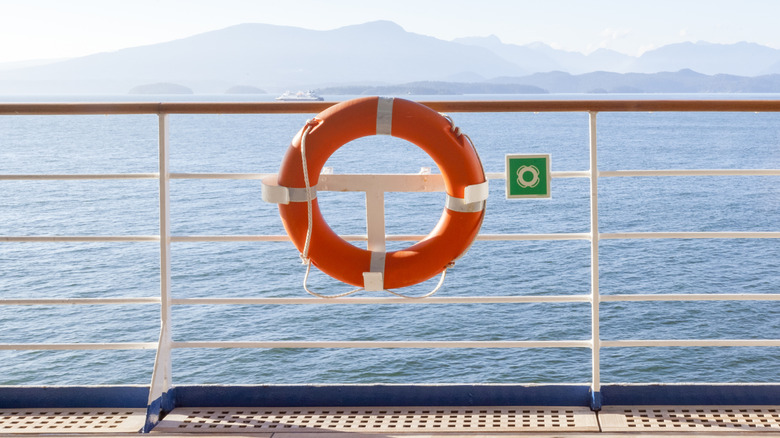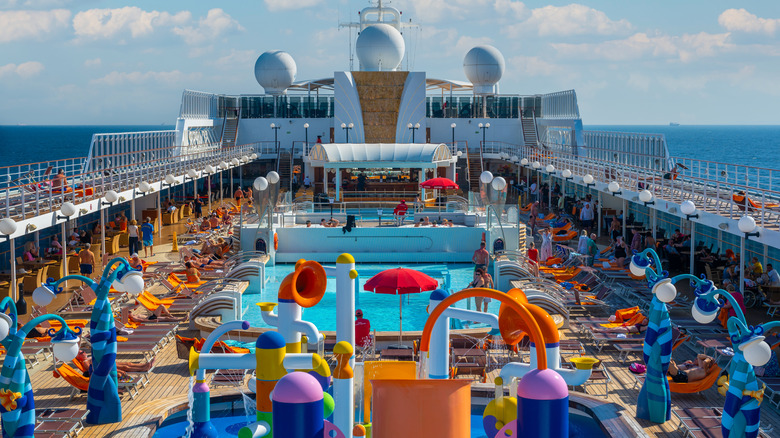Do Cruise Ship Passengers Pay Fees For Being Rescued If They Accidentally Go Overboard?
If you're booking a cruise, toppling overboard is probably not at the top of your list of concerns (although the idea might've crossed your mind). While rare, these incidents do happen. According to the Cruise Lines International Association (CLIA), between 2009 and 2019, an average of 19 people per year fell overboard from cruise ships. In the grand scheme of things, that makes your chances of toppling over close to zero. In man overboard situations, statistically, your chance of survival sits around 20%, with 170 of the 212 falls in that decade being fatal. If you do accidentally go overboard on a cruise ship, though, who fronts the bill?
A ship's liability will depend on the circumstances of the fall or man overboard incident. Whether or not a passenger pays a fee may entirely depend on whether the cruise ship could be deemed responsible for the accident. Legally, ships may be held responsible if they either failed to prevent the incident or handled it poorly after the fact. The Cruise Injury Law Firm says that "liability is determined by whether the cruise company met its legal obligations under maritime law and passenger safety standards. If they failed to take reasonable precautions or acted negligently, they could face legal consequences."
With some travelers now living on cruises full-time, ships need to maintain a duty of care. According to the law as it stands, cruise companies are financially responsible for rescue efforts should you go overboard. You may, however, have to pay for additional medical costs after being rescued, unless there was negligence on the cruise's part that caused your injuries. If you are charged, you can sue the cruise ship company, but this must be done before the filing deadline.
Coverage for other cruise ship accidents
Someone falling overboard is a rare occurrence, but it's definitely not the most common injury or extra cost incurred on a cruise. Ships can be held accountable for things like poor or missing handrails, intoxication as a result of being overserved, not warning passengers about rough seas, failing to perform adequate search and rescue operations, and violence from other passengers or crew members (in fact, defending yourself is probably one thing you didn't realize could get you banned from a cruise). These are a ship's liabilities for a man overboard or disappearance situation, but they also apply to injuries onboard.
Slips and falls are the cause of most injuries on cruise ships. These are avoidable to some extent, but any wet surface around a pool tends to be ripe for injuries. Foodborne illnesses and other viruses can also be huge problems on cruise ships, and tend to spread quickly among the closely contained population. Norovirus, in particular, is common on cruise ships, which can spread through the kitchens and food served at buffets. This issue was very visible during the beginning of the COVID-19 pandemic, but it could happen at any time, particularly with stomach and intestinal viruses. Similarly, passengers may be entitled to compensation if illness on a cruise is caused by the ship's negligence. Now that you're caught up on your health while aboard, here's what you need to know if your cruise ship experiences a blackout.

